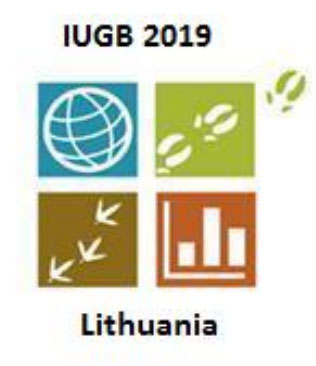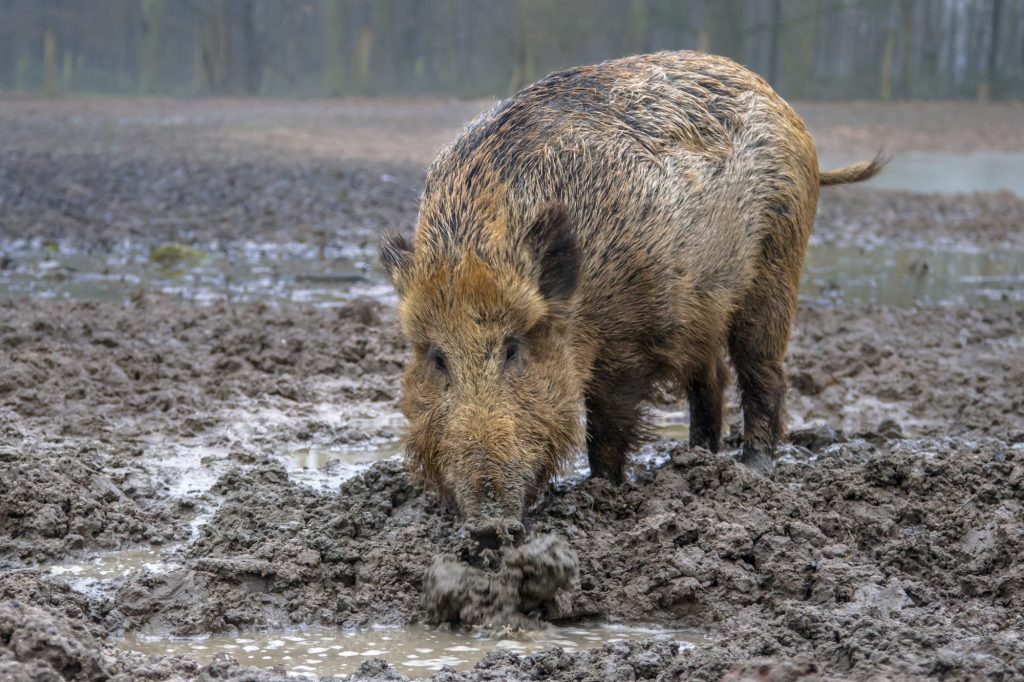The IUGB (International Union of Game Biologists) is an international non-profit organisation whose aims are to promote the improvement of knowledge about game biology and any other skill related to wildlife, such as wise use of animal populations and the conservation of their habitats. IUGB is also a platform that allows networking between its Members.
To this purpose, the IUGB :
- organizes an international congress every two years;
- promotes the concept of sustainable use of wildlife resources;
- stimulates research and international technical cooperation in the elaboration of new models of development and management of renewable resources, integrating the objectives of wildlife conservation, wise land use and economic decisions;
- promotes awareness and appreciation of wildlife values;
- supports and advances high standards of education and professional performance in the field of wildlife management;
- contributes to the solidarity amongst its Members;
- is committed to the protection of wild animals and the conservation of species;
- exchanges information and encourages other forms of collaboration between this and other associations in allied scientific disciplines.O

An essential key of the 34th IUGB Congress referred to: Wildlife: Coexistence or Opposite?
The 34th IUGB 2019 Congress presents research related to forestry, agriculture, hunting, recreation, urbanization, climate change, ecosystem and economic development, and human-wildlife coexistence. Managers of natural resource as foresters, hunters, soil and water conservationists, civil engineers, urban and land use planners and researchers no longer have the luxury of thinking of themselves in isolation from one another. They work within the same environment (landscapes, watersheds, and communities).
To this purpose, the IUGB :
ENETWILD WORKSHOP AT IUGB 34th CONFERENCE
26-30 August 2019 Organized by ENETWILD
ENETWILD will organize a workshop during the IUGB Conference (26-29th August, Riga, Lithuania), titled;
“Towards Sustainable Management of Wild Boar Populations: facing ASF in Europe”
This conference focuses, among other aspects, on wildlife conflict management strategies, modern management approaches attempting to use scientific research for better management outcomes under the view that mitigation of human-wildlife conflict is an important issue in the management of biodiversity and protected areas, so as hunting areas.
The ENETWILD workshop will address the case of wild boar in relation overabundance and disease risk, the need for population data for science based wild boar management and disease risk analysis, estimating wild boar populations (practical methodology issues, ungulate game (particularly wild boar) hunting data collection frameworks across Europe: harmonizing the way data is collected in order to be comparable (and shared!), how can we take advantage of citizen science (ENETWILD-CS project), examples of control programs at large scale overseas. All this is essential to move towards integral and coordinated management of wild boar (and wildlife in general) in Europe (ecological, technical, social, economic and political aspects). We promise interesting discussion, see you in Riga!
Info on the workshop “Towards Sustainable Management of Wild Boar Populations: facing ASF in Europe”:
ENETWILD Schedule:
14:00 – 14:20 Disease risk (ASF) and overabundance: the case of wild boar
14:20 –14:40 Risk analysis for ASF: need for population data. Enetwild hunting data collection frameworks across Europe: harmonizing the way data is collected in order to be comparable (and shared!)
14:40 –15:00. Data collection through Citizen Science
15:00 – 15:40 Coffee break
15:40 – 16:00 Estimating wild boar populations: practical methodology issues
16:00 – 16:20 Modelling wild boar distribution
16:20 – 16:40 Challenges and science-based implications for modern management and conservation of European ungulate populations.
16:40 – 17:00 Towards integral and coordinated management of wild boar in Europe: ecological, technical, social, economic and political aspects
17:00 – 17:40 Discussion

